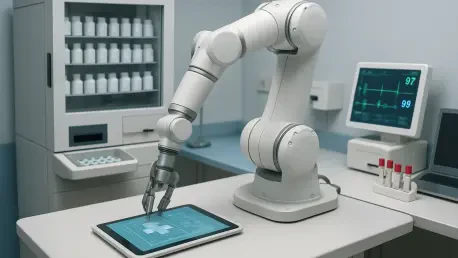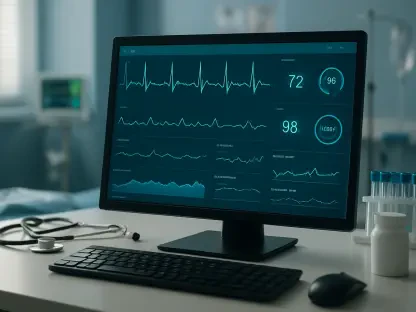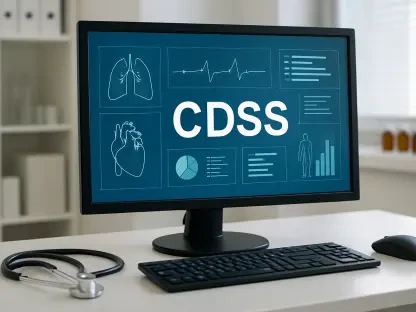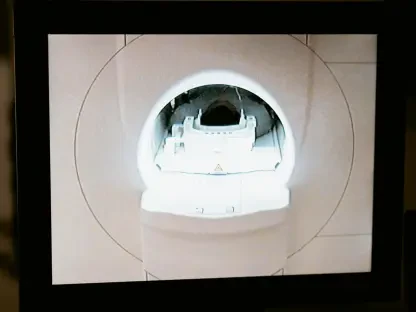Imagine a healthcare system so burdened by administrative tasks that staff struggle to focus on what truly matters—patient care. In Queensland, Australia, Gold Coast Health (GCH), which manages over 20 facilities in the region, faced this very challenge until a groundbreaking solution emerged through robotic process automation (RPA). By embracing this technology, GCH has redefined operational efficiency, redirecting thousands of hours from mundane tasks to meaningful patient interactions. This transformation, initiated a few years ago, showcases how digital innovation can alleviate systemic pressures in healthcare, ensuring better outcomes for both staff and patients. The journey of GCH offers a compelling glimpse into how automation can serve as a lifeline in an industry often stretched thin by growing demands and limited resources.
Transforming Healthcare Operations
Streamlining Administrative Burdens
Gold Coast Health has tackled the pervasive issue of administrative overload by automating 20 critical workflows that operate continuously. These processes include managing outpatient referral waitlists, uploading clinical documents, ensuring near real-time access to clinical images, and sending secure notifications to general practitioners about patient admissions. By targeting high-volume tasks that once consumed significant staff time, the automation initiative has bridged gaps in legacy systems that lacked modern integration. What began as simple, single-system automations has evolved into complex processes involving over 300 steps across multiple platforms, including Citrix-based systems utilizing computer vision technology. This strategic focus on efficiency has not only reduced manual workloads but also minimized errors, creating a smoother operational flow that directly benefits patient care delivery across the region.
Quantifiable Gains in Time and Care
The impact of automation at GCH is strikingly evident in the numbers, with over 40,000 work hours saved annually—an effort equivalent to the workload of 20 full-time staff members. Specific achievements include the automation of waitlisting for more than 130,000 patient referrals each year, saving 13,000 hours alone, and reducing the time to upload clinical images from 19 hours to a mere 15 minutes. Such efficiencies enable faster treatment decisions, which are critical in healthcare settings. Additionally, automating the upload of vital documents to electronic medical records and notifying general practitioners of admissions has strengthened care continuity. Far from replacing staff, this technology empowers them by lifting the weight of repetitive tasks, allowing more time for direct patient engagement and reducing workplace stress in a demanding environment.
Building Resilience and Future Innovation
Unwavering Service During Crises
One of the standout benefits of automation at Gold Coast Health is its role in maintaining service continuity during unexpected challenges. A prime example occurred during Tropical Cyclone Alfred earlier this year, when automated systems processed patient referrals without interruption, despite adverse conditions. This reliability highlights how RPA can act as a backbone for operational stability in healthcare, ensuring that essential services remain unaffected by external disruptions. Such resilience is invaluable in a sector where delays can have serious consequences for patient outcomes. By embedding automation into core processes, GCH has created a framework that not only supports day-to-day operations but also stands firm in the face of crises, setting a precedent for other health services navigating similar challenges.
Pioneering a Digital Tomorrow
Looking ahead, Gold Coast Health is not content to rest on its current achievements but is actively exploring the integration of cutting-edge technologies to further enhance efficiency. Innovations such as artificial intelligence, communications mining, and intelligent document processing are under consideration to build on the foundation laid by RPA. This forward-thinking approach aligns with a broader digital transformation strategy aimed at meeting escalating service demands and community expectations. Additionally, initiatives like a digital front door for chronic disease patients, accessible via QR code scans, demonstrate a commitment to reducing hospital congestion through technology. By fostering a digital ecosystem, GCH ensures that staff can adapt to evolving tools and processes, positioning the organization as a leader in healthcare innovation with a clear vision for sustained growth and improved patient care.
Reflecting on a Milestone Achievement
Lasting Impact of Automation
Reflecting on the journey, Gold Coast Health’s adoption of robotic process automation marked a turning point in how healthcare efficiency was perceived and achieved. Since its inception a few years ago, the program has saved over 40,000 hours annually by streamlining burdensome administrative tasks, allowing staff to redirect their focus to patient-facing roles. This shift not only enhanced care delivery but also alleviated the stress of manual workloads, creating a more balanced and effective workforce. The resilience shown during natural disasters like Tropical Cyclone Alfred further underscored the dependability of these automated systems, proving their worth in maintaining critical services under pressure. This milestone stands as a testament to the power of technology in transforming operational landscapes within healthcare.
Charting the Path Forward
As Gold Coast Health looks to the future, the focus remains on expanding the scope of digital tools to address emerging challenges in healthcare delivery. Exploring integrations with artificial intelligence and other advanced technologies promises to elevate the efficiency gains already realized. Health services worldwide can draw inspiration from this model, considering how automation might alleviate their own operational strains. The next steps involve scaling these innovations to cover more complex processes and broader patient needs, ensuring that technology continues to serve as an enabler rather than a replacement for human care. By maintaining a commitment to adaptability and strategic planning, GCH has laid a robust foundation for ongoing advancements, offering a blueprint for how healthcare systems can evolve to meet the demands of tomorrow with confidence and precision.









